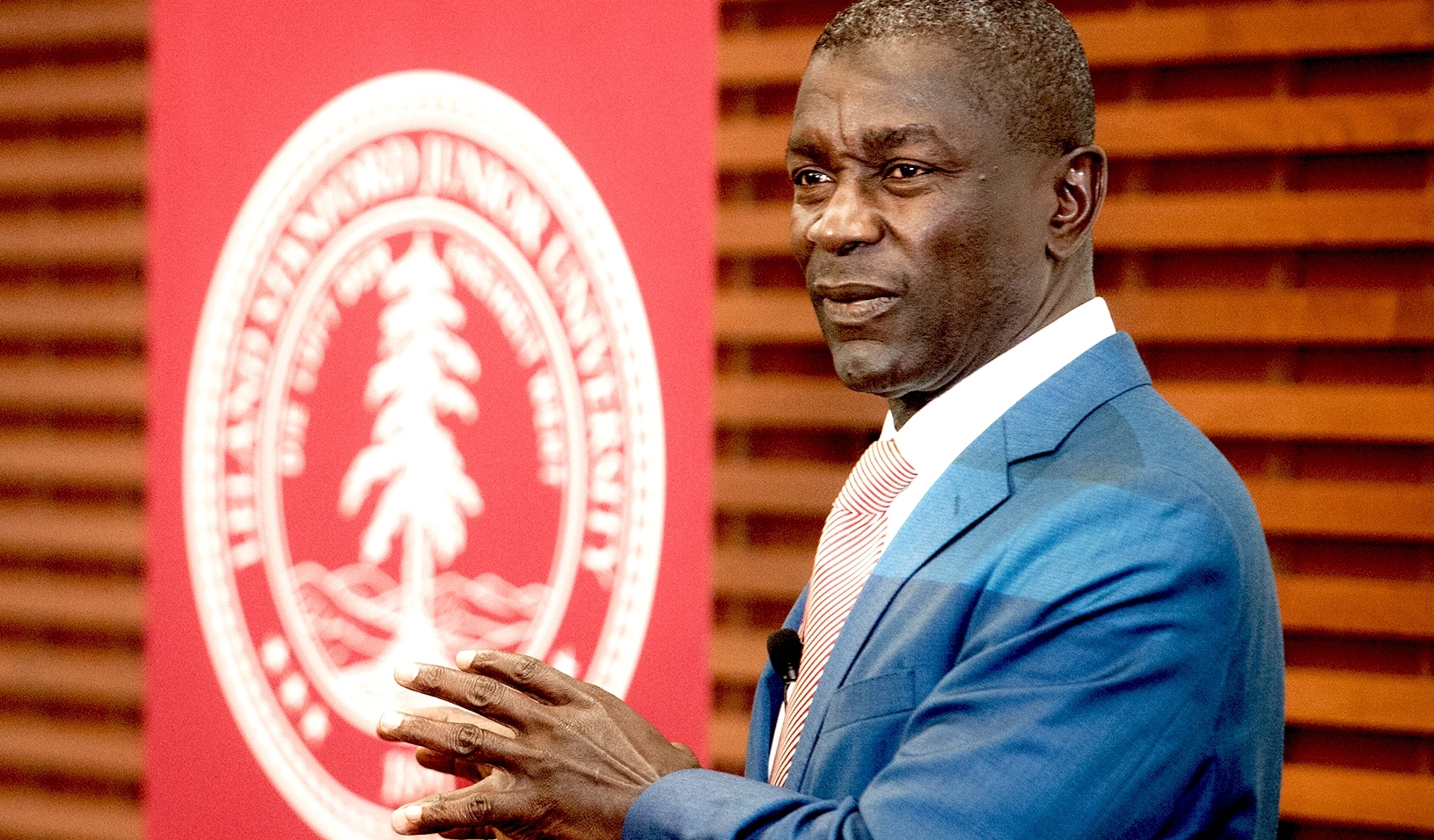
So how has the journey been for one of Ghana’s entrepreneurial masterminds in history?
Prince Kofi Amoabeng is the outgoing Chief Executive Officer of UT Bank and the President of UT Holdings. He is a retired military officer (Captain) and an investment consultant. He graduated from the premier Business School in Ghana- University of Ghana Business School with a B.Sc. Admin (Accounting). He is a fellow of the Chartered Institute of Management Accountants (CIMA-UK) and a member of Chartered Accountants CA (GH).
From his company’s humble beginnings as a Money Lending company to a fully fledge Ghanaian local Commercial bank, Amoabeng will go down as one of Ghana’s industrious captains in entrepreneurship. He simplified the ease of banking and finance for the average Ghanaian industrialist and petty trader who needed to be roped in to the mainstream and ever-growing Ghanaian banking sector at the time that many Nigerian indigenous banks were responding to the calls to expand to other West African countries to take advantage of the unbanked in these countries. Prince Kofi Amoabeng touched base with the average trader on the street of Katamanto. I once watched his interview on a local TV station where he recounted how close they were with their customers who will often come to him for personalized financial solutions to their banking needs. Looking at the conservative approach Ghanaian traders tend to have towards traditional banking, it was phenomenal for the maverick finance manager to break into this fold to do business with them.
He blazed a trail for indigenous money managers to branch out from the traditional banking sector to serve the unbanked in the country. There came the establishing of many other savings and loans institutions up until now.
CAREER
Kofi ventured into various enterprises; Opayesco Wood Processing Co Ltd, K. K Power & Co ltd, P. K. Amoabeng Enterprise Ltd, Schiewer Gh. Ltd. He also made time to run a consulting firm, Jam Haus. From 1992-2002, he was an excellent teacher at the Ghana Stock Exchange, and a major resource person. His endeavors included oil procurement, and he facilitated the entry of the French petroleum company Elf into Ghana.
In1997, he conceptualized the idea of setting up a ‘finance house’ to provide timely and appropriate finance for businessmen like himself who found it almost impossible to get such assistance from the traditional banking sector. With friends urging him on, he took the plunge, and with co-founder and Chairman of the company, Mr. Joseph Nsonamoah, they registered it initially as Best Financial Services, and then later, upon advice from the Bank of Ghana, changed the name to Unique Trust Financial Services (Now UT Bank).
In a short, but eventful span of some 15 years, raising an initial 255 million cedis (25,000 Ghana cedis) as seed money, and staff of 3 operating from a tiny office at Kantamanto in the Central Business District in Accra, UT is now a Bank with a turnover of about US$55.5 million, more than 600 employees and 26 branches in seven of the ten regions of Ghana.
He has extensive experience in managing businesses through excellent customer relations, strategic and tactical business planning as well as strategic partnerships.
With all these achievements under his belt, corporate Ghana and analyst alike will be watching with keen interest the next move for the three time Ghana’s Most Respected CEO winner.
ACHIEVEMENTS
He has extensive experience in managing businesses through excellent customer relations, strategic and tactical business planning as well as strategic. His achievements include three times running “Ghana’s Most Respected CEO (2008, 2010 and 2012) organized by Pricewaterhousecoopers and B&FT.
He is Ghana’s Johnny Walker Giant; Overall Best Entrepreneur in the Maiden Ghana Entrepreneurs Award (2011); No. 3 in the 100 most influential Ghanaians as compiled by ETV, Ghana (2012) as well as the joint finalist with his partner in the Ernst & Young West Africa Entrepreneur of the Year Award (2011).
Others are: National Honours for an Order of the Star of the Volta- Officer’s Division presented by the President of Ghana in 2008 and one of two Ghanaians profiled in Moky Makura’s book on Africa’s greatest entrepreneurs which profiles 16 of Africa’s top entrepreneurs and Marketing Man of the Year 2006.
Mr. Amoabeng is a member of the Board of Directors of the Ghana Interbank Payment Settlement System (GHIPSS), Chairman of the Council of Enablis Ghana (Canadian Entrepreneurial NGO) and member of the International Advisory Board of China Europe International Business School (CEIBS), in Ghana.
But what can the business manager learn from the legendary Kofi Amoabeng?
BE A TRAILBLAZER
Prince Kofi Amoabeng came in at a time that banking was the preserve of the formal sector. The informal sector in Ghana was unbanked. According to the World Bank, only 7.77million, representing 30 percent of Ghana’s population has an account or multiple accounts with banks in the country. Kofi Amoabeng’s dream as he espoused in an earlier interview was to bridge this gap by bringing banking to the door step of the unbanked. Cost and documentation which was a determinant in account opening was relaxed for his earlier customers to get on board. And many years down the line industry watchers can attest to the fact that a lot has been done with the proliferation of Micro Finance Institutions across the length and breadth of Ghana. Prince Kofi Amoabeng played his part. Business managers and entrepreneurs alike should look out for opportunities in the midst of challenges and blaze a trail. Leaders in the corporate arena are people who see far when everybody is talking about why they cannot go far. He painstakingly did his part with the team at UT and today he’s celebrated as a trailblazer in the banking and finance industry in Ghana.
PERSEVERANCE CONQUERS ALL
He persevered among all odds in the early days of the business. The unbanked in Ghana are mainly in the informal sector and that was the focus of UT Financial Services. There were no proper address and location for some of these business owners and SMEs he was doing business with but he kept the faith and mapped out strategies to still engage this chunk in the informal sector.
Some responses gathered by Business Day earlier this year in an interaction with small business owners and market traders revealed that most people shun banks due to a number of reasons which include lack of trust, difficulty in accessing funds, cumbersome procedures in opening accounts, and high interest charges on loans. These are the germane concerns of traders but the maverick Prince Kofi Amoabeng sailed through although more need to be than to instill trust and confidence in the local banking industry.
As an entrepreneur or a business manager you’ve got to have the knack to persevere in the midst of difficulties and uncertainties. It is this stuff that great entrepreneurs in the caliber of Prince Kofi Amoabeng are made of.
INNOVATE
After blazing the trail and persevering you need to be an innovator. Innovation lasts when you are out of cash and energy. Loan recoveries were a daunting task for him and his team but it was during this same period that the famous “a loan in 48 hours” was launched. It became the tag line of the money lending firm. The company he led was known by it, making loan accessible to customers with ease. And the effort has paid off. This was a very innovative idea back then in the growing banking industry in Ghana. So even before UT, spearheaded by the enigmatic Kofi Amoabeng could enter the commercial banking space, he was coming on board with some disruptive innovations to the highly conservative industry.
Be on the lookout for innovative ideas to drive the service you provide or the goods you are selling. It counts a lot and it will be the differentiator between the leaders and also-runs.
FOCUS
UT has won many industry awards for support to SMEs. This is a testament to their focus at serving the needs of the Small and Medium Enterprises. The local banks are not ready to assist local entrepreneurs and SMEs because in their estimation, it is a very risky business to do. Prince Kofi Amoabeng set out to do business primarily with these entrepreneurs and SMEs on the streets of Makola, Katamanto, Kaneshie Tema Harbour all in the Greater Accra Region; Adum, Kejetia and Asafo in the heart of Kumasi. These were our local business hubs where access to credit facilities was a daunting challenge for these owners of small businesses. His focus was to do business with these lots. Focus is key in building great enterprises like Kofi Amoabeng did.
Prince Kofi Amoabeng is bowing out but his contribution to the local banking and finance sector cannot be overlooked. He blazed the trail, prevailed, persevered, innovated and was focused on a primary role which arguably, he did to the admiration of all.
Where is his next stop, Politics or academia? Wherever he stops stands to benefit from his experience.
Author: Paa Swanzy-Essuman || p.swanzy@ghanatalksbusiness.com









